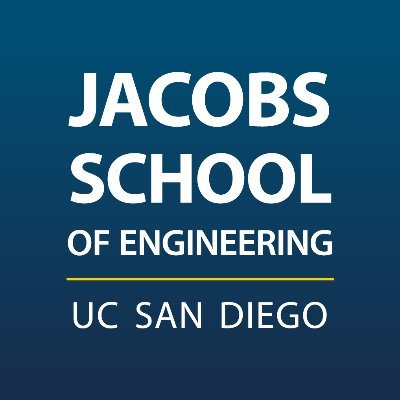News

March 11, 2014
New UC San Diego Biosensor Will Guard Water Supplies from Toxic Threats
Supported by a $953,958 grant from the Defense Advanced Research Projects Agency (DARPA), researchers at the University of California San Diego will develop a sophisticated new biosensor that can protect the nation’s water supplies from a wide range of toxins, including heavy metals and other poisons. The project, led by Jeff Hasty, director of the BioCircuits Institute at UC San Diego, will combine next-generation sequencing, synthetic biology, and microfluidic technologies to engineer a highly specific array of biosensors that will continuously monitor water supplies for the presence of toxins. Full Story

March 7, 2014
Dive into Technology's Future at Research Expo 2014
Research Expo will be held on Thursday, April 17, from 1:30 p.m. to 6p.m. Register today. The annual event features research posters by more than 200 engineering graduate students from UC San Diego, faculty talks, and a networking reception with faculty, students, industry partners and alumni. Full Story

February 28, 2014
Bioengineering Students Recognized for Outstanding Research
Several bioengineering students have been recognized for their outstanding research. Full Story

January 30, 2014
Studying Stem Cell Diets to Make Better Heart Cells
What nutrients are needed for stem cells to grow and function as heart cells? That’s the question at the heart of research led by bioengineer Christian Metallo at the University of California, San Diego. He is one of eight UC San Diego researchers to receive a combined total of $8.165 million in funding from the California Institute for Regenerative Medicine in a new round of Basic Biology awards announced Jan. 29. Metallo’s share is $1.124 million. The awards were made by CIRM’s Independent Citizens Oversight Committee. Full Story

January 24, 2014
UC San Diego Highlighted in Governor's State of the State Address
As Governor Edmund G. Brown Jr. delivered his annual State of the State address to the Legislature yesterday, he highlighted the University of California, San Diego as a leader in developing medical and scientific advances. In prepared remarks, Gov. Brown noted, “Four out of the world’s 20 leading academic bioscience institutions are located here in California: UCSF and Berkeley, UCLA, Stanford and UC San Diego. Just as California has led the way with stem cell research, so too can we pioneer the new field of precision medicine which uses genomics, medical devices, computer sciences and other fields to treat individual patients, instead of broad populations.” Full Story

January 14, 2014
Single-Cell Genome Sequencing Gets Better
Bioengineers at the Jacobs School have created a better way to sequence genomes from individual cells. The breakthrough, which relies on microwells just 12 nanoliters in volume (see image below), is one of many recent "omics" innovations from researchers across the Jacobs School and UC San Diego. The single-cell genome sequencing advance from Kun Zhang's lab could help researchers understand what causes Alzheimer's disease. The work could also enable scientists to identify tough-to-culture microbes living in ocean water and within the human body-by probing single cells. Full Story

January 9, 2014
How to Manage Mobile Medical App Development Under FDA Regulation
A consortium of six leading universities, more than a dozen industry trade associations and professional societies, and the U.S. Food & Drug Administration announced their unprecedented collaboration to develop a series of educational programs designed to help mobile app developers learn about FDA requirements for producing higher risk medical apps as well as the business issues associated with entering this space.Called the “MMA Roadshow: Managing App Development under FDA Regulation,” the four-hour workshops are scheduled over several months across the country, including Jan. 27 at the University of California, San Diego. Full Story

January 6, 2014
Biomaterials Get Stem Cells to Commit to a Bony Future
With the help of biomimetic matrices, a research team led by bioengineers at the University of California, San Diego has discovered exactly how calcium phosphate can coax stem cells to become bone-building cells. This work is published in the Proceedings of the National Academy of Sciences the week of Jan. 6, 2014. Full Story

December 13, 2013
2013: The Year in Review
From the largest alumni gift in the campus’ history, which went to the Department of Computer Science and Engineering, to the arrival of Dean Al Pisano, it’s been a busy year here at the Jacobs School of Engineering. The school produced many research milestones, from a Google map of the human metabolism to the world’s first zoomable contact lens. Students got into the action too and UC San Diego became the first university to design, build and test a 3D-printed rocket engine. Here are some of the most memorable stories of the year—but not all: the list would be too long. Full Story

November 25, 2013
Bioengineering Professor Among Six UC San Diego Faculty Named 2013 AAAS Fellows
Six professors at the University of California, San Diego have been named 2013 Fellows of the American Association for the Advancement of Science, the nation’s largest general science organization. Full Story
